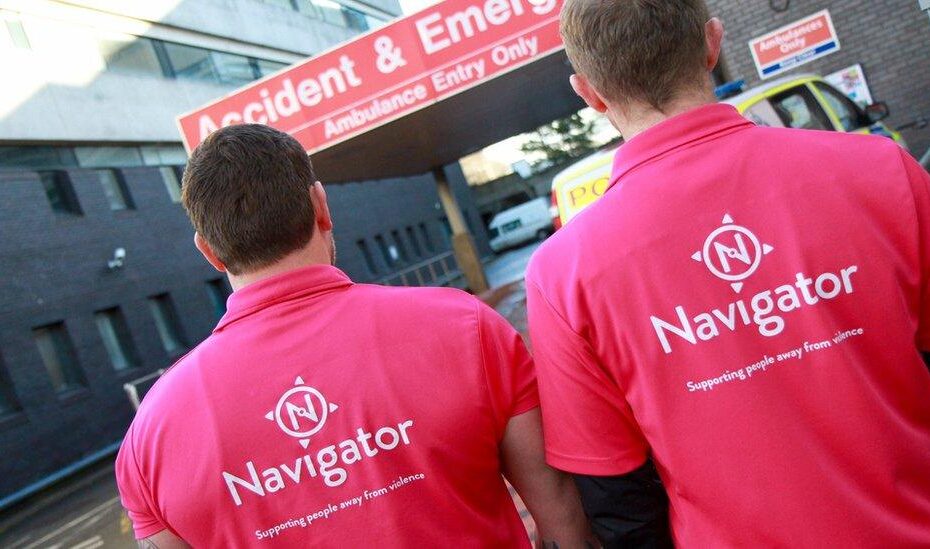Over the past decade, a quiet yet powerful transformation has been underway within Glasgow Royal Infirmary’s (GRI) Emergency Department. The Navigators programme, run by Medics Against Violence, has been offering a lifeline to individuals at their most vulnerable moments, providing not just support but hope, connection, and a path forward.
The Navigators initiative began in GRI, inspired by the Red Thread model in London. Initially focused on violence prevention, the programme quickly evolved to address a broader spectrum of social and health-related issues.
“It became clear really quickly that it wasn’t just about violence,” explains Geraldine Lennon, Head of Services for Medics Against Violence. “People needed support with substance use, isolation, mental health, and family issues. We work with everyone, from those in deprived areas to those from affluent backgrounds. The common thread is vulnerability.”
What makes the Navigators unique is their presence within the Emergency Department (ED) itself. Dressed in bright pink, they are a visible and approachable presence in a high-pressure environment.
Callum Hutchison, Regional Supervisor for GRI, said: “We’re based in the department, not off-site. That means we can respond in real time. Sometimes it’s a nurse or doctor who flags someone to us, but often it’s just about being there, offering a cup of tea, and starting a conversation.
“What brings someone into A&E, a sprained ankle, for example, isn’t always what they need help with. We’ve had people disclose decades of domestic abuse during what seemed like a routine visit.”
Once a patient agrees to engage, the Navigators arrange follow-up support in a setting of the patient’s choice, whether at home, in the community, or back at the hospital.
“We’re not the long-term help,” Callum clarifies. “We’re the bridge. We empower people to make better decisions and connect them with the right services, whether that’s addiction recovery, mental health support, or housing.”
Delma Egan, Lead Navigator for Glasgow Royal Infirmary and Queen Elizabeth University Hospital, added: “We’re a signposting service, but there’s no set timeframe for how long we work with someone. It could be weeks or months; it all depends on where they are in their life.”
The Navigators’ presence in the ED is more than symbolic. “Everything is heightened in A&E,” said Geraldine.
“When someone is in crisis, that’s when they’re most open to change. Meeting them in that moment makes all the difference.”
“When I go behind that curtain, I sit down and share experiences”, added Delma. “We’re there to give people hope.
“Sometimes the person wants help, needs help, but taking that first step is hard.
The programme has also earned the respect of NHS colleagues. “We’re embraced as part of the team,” says Callum. “Doctors and nurses often tell us, ‘We can’t have those conversations, but you can.’”
“You can never fully evidence what you’ve prevented,” says Geraldine. “But I’d stake my next five years’ salary on the fact that lives have been changed beyond people’s wildest dreams.” She adds, “We’ve seen people get sober after decades of addiction, reunite with their children, and start new lives. But we don’t take credit for that. That’s the patient’s achievement. We’re just there to walk with them for a while.”
“Every day is different,” says Delma. “Every patient brings their own story, their own life experience. That’s what makes this work so human.”
As the programme marks its tenth anniversary, both Geraldine, Callum, and Delma agree that its value is clear.
“A decade proves the concept,” says Callum. “It’s no longer radical, it’s common sense.”

